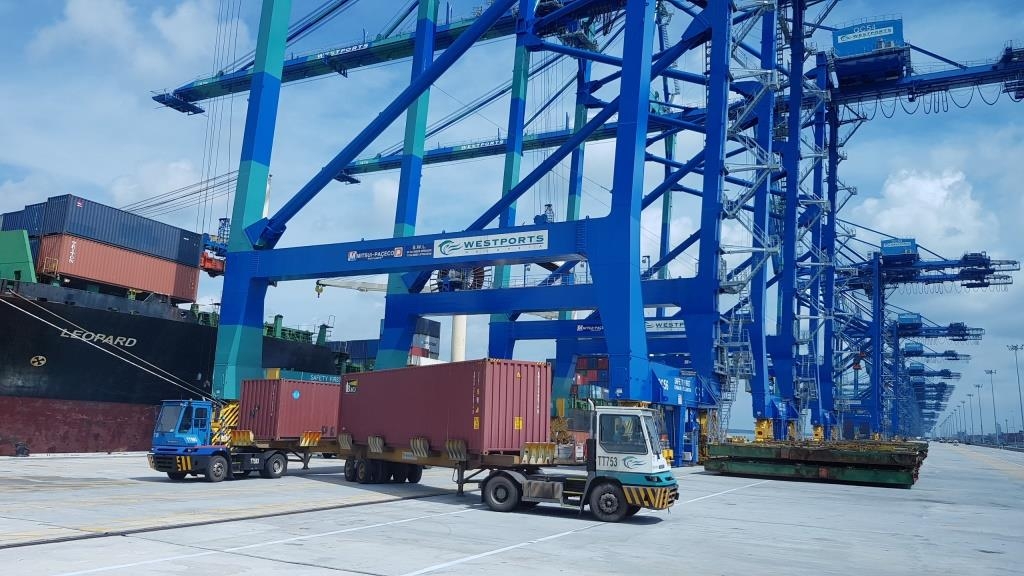
The overall objective of the project was to provide any interested country with the opportunity to exchange electronic phytosanitary certificates (known as "ePhytos") to facilitate safe and efficient trade in plant products.
In addition, the establishment of the ePhyto system improved the security of official communications between countries and eliminated the cost and complexity of countries developing individual systems for electronic data exchange and the necessity to negotiate exchange protocols on a country by country basis.
Look at the latest information about the ePhyto Solution or visit the project website here.
This project was evaluated by an independent evaluation team. Find out more about the evaluation and its findings here.
Since the late 1970s, exporting countries have relied on paper phytosanitary certificates to provide assurances that the plant or plant product being exported to another country meets the phytosanitary requirements of the importing country.
The IPPC, taking advantage of technological developments, recognised that efforts should be made to facilitate the exchange of ePhytos, especially keeping in mind that several countries were beginning to develop unique systems of their own. Through its Commission on Phytosanitary Measures, the IPPC determined that: (i) harmonization of the technology would be the most cost-effective and technologically efficient way forward for all members; (ii) any system to be developed should be completely accessible for any country choosing to use it; and (iii) access and use of the system for both sending and receiving ePhytos should take into account the absence, or very low levels, of both technical and financial capacity among developing countries.
The ePhyto project involved many stakeholders:
Project Steering Group: composed of individual technical experts from IPPC, the United Nations International Computing Centre (UNICC), Argentina, Australia, China, Kenya, Korea, Morocco, the Netherlands and the US.
Project Advisory Committee: composed of FAO, UNICC, the United Nations Centre for Trade Facilitation and Electronic Business (UN/CEFACT), The United Nations Conference on Trade and Development (UNCTAD), World Customs Organization (WCO), the Convention on International Trade in Endangered Species of Wild Fauna and Flora (CITES), OIE, Codex, the World Bank Group, the Netherlands, Australia and the US.
Project Industry Advisory Group: composed of Federation of Cocoa Commerce Limited, International Community of Breeders of Asexually Reproduced Ornamental and Fruit Varieties (CIOPORA), International Grain Trade Coalition (IGTC), International Seed Federation (ISF), International Wood Products Association (IWPA), Union Fleurs (International Flower Trade Association), European Seed Association (ESA), European potato trade association (Europatat), European Fresh Produce Association (Freshfel Europe), The Global Express Association, and International Cotton Advisory Committee. The IAG observers includes representatives of Global Alliance for Trade Facilitation (GATF) and Wine Institute.
Establishment of the contract for the ePhyto Solution
The IPPC Secretariat selected the United Nations International Computing Centre (UNICC) as the lead technical unit for the IPPC ePhyto Solution, including the selection, hosting and long-term maintenance of the Generic ePhyto National System (GeNS) and the Hub.
Establishment of a GeNS for the production, sending and receipt of electronic certificates
The web-based Generic system for the production, submission and receipt of ePhytos constitutes a practical solution for developing countries or countries with limited trade that do not have the resources or capacity to establish and maintain their own server-based electronic system. The GeNS was tested in Ghana, Sri Lanka and Samoa, which are now exchanging ePhytos with their trading partners.
Establishment of an internationally accessible hub for ePhyto exchange
UNICC established the ePhyto Hub to facilitate the exchange of ePhytos between National Plant Protection Organizations (NPPOs) based on the design specifications proposed and agreed upon by the Project Technical Committee and discussed with the Project Advisory Committee. The Hub eliminates the need for countries to set-up costly individual bilateral agreements for transmission of data, reduces development costs and allows for ease of transmission and receipt of certification information for any country that has accessed the system.
Establishment of a fully operational ePhyto Solution
A pilot consisting of approximately ten countries was carried out. It tested the operation and usability of the Hub in communicating between the GeNS and the systems built by national governments connected to the Hub. The benefits of the ePhyto Solution are apparent. These include:
- Improvements in security including the reduction of fraudulent certificates.
- Increases in trade flows through border access for plants and plant products.
- Reduction in costs and complexity.
- Reduction in the use of paper resulting in a positive environmental impact.
- Elimination of the need to engage in costly bilateral negotiations.
Development and dissemination of training, advocacy, and business process re-engineering tools
As part of this output, a needs assessment was carried out, existing resources were evaluated, gap analysis and priority setting were conducted, training media was identified, and priority tools were developed.
Facilitation of long-term knowledge sharing
The Project Advisory Committee guided the development and design of the ePhyto Solution and examined linkages and synergies with other initiatives on paperless trade, customs automation and Single Window systems. After the completion of the project, this group remained active and was re-established as the STDF Electronic Certification Advisory Committee (ECAC). The independent Industry Advisory Group that provided practical insights into industry practices, needs and requirements also remained active after completion of the project.
Expand the use of the ePhyto system beyond the phytosanitary community
Following the successful demonstration of the concept of exchanging phytosanitary certification information digitally, this system should be scaled up to the broader sanitary and phytosanitary world.
Expand the availability and use of the system to all interested global players with an interest in facilitating trade for all countries
The ePhyto Solution was established in such a way as to allow for any certificate to be transmitted once the harmonized XML coding has been developed. This means that any organization wishing to digitalize its certificates can theoretically make use of the certificate exchange system.